As cat owners, it’s natural for us to share our lives and, sometimes, our food with our feline friends. However, it’s crucial to understand that not all human foods are safe for cats. One such food item that often raises questions is bacon – specifically, raw bacon. Is it safe? Are there potential health risks? In this article, we’ll explore whether cats can eat raw bacon and provide a comprehensive understanding.
The Basics About Bacon
Bacon is a type of salt-cured pork that is often part of our breakfasts. It’s made from various cuts, most commonly from the pork belly or from the less fatty back cuts. It is typically high in fat and sodium, both of which contribute to its appealing taste and texture. The process of preparing bacon involves curing and sometimes smoking, which leads to the characteristic flavor most of us are familiar with. However, despite its popularity among humans, it’s important to consider whether these attributes make it a suitable food for cats.
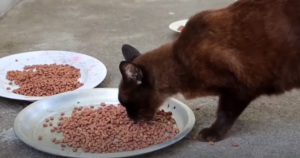
Is Raw Bacon Safe for Cats?
The short answer is no, raw bacon is not safe for cats.
These bacteria can result in severe digestive problems for cats, manifesting as symptoms like vomiting, diarrhea, and appetite loss. Furthermore, the high fat and sodium content in bacon is unhealthy for cats.
Additionally, the high fat content can contribute to obesity and other health issues like pancreatitis. Therefore, it’s best to avoid feeding your cat raw bacon. [1]
What are the Risks of a Raw Diet for Cats?
A raw diet for cats, while seemingly natural and beneficial, carries several risks. First and foremost is the potential for bacterial contamination. Raw meat can harbor harmful bacteria like E. coli and Salmonella, which can lead to severe gastrointestinal issues in cats. Secondly, raw diets can often be nutritionally imbalanced. Cats require a specific balance of nutrients, including certain proteins, vitamins, and minerals, many of which are difficult for pet owners to accurately measure at home. An imbalance in these nutrients, whether lacking or excessive, can result in significant health complications, including heart disease and skeletal disorders. Lastly, there’s also the potential risk of physical harm, such as choking or internal injuries, from cats consuming bones often present in raw diets. To ensure the well-being of your cat, it is imperative to seek guidance from a veterinarian prior to contemplating a raw diet.
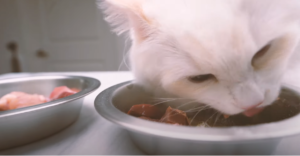
What Kinds of Bacon Can Cats Eat?
While raw bacon should be avoided, small amounts of well-cooked, unseasoned bacon can occasionally be given to cats as a treat. It’s important to remember that bacon should never make up a significant part of a cat’s diet due to its high fat and sodium content.
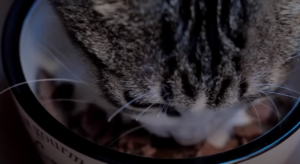
Turkey Bacon
Turkey bacon can be considered as a slightly healthier alternative to traditional pork bacon due to its lower fat content. However, it is still not an ideal food for cats. Like regular bacon, turkey bacon is often high in sodium and processed with additives, which are not healthy for cats. Furthermore, while it does contain protein, it lacks the necessary nutrients that cats require for their daily diet like taurine, which is essential for a cat’s heart, kidney, and eye health. Therefore, while it’s less harmful than raw bacon, turkey bacon should still only be given to cats in very small quantities, if at all. [2]
Canadian Bacon
Canadian bacon refers to a form of back bacon that is typically leaner than traditional bacon. However, just like any other type of bacon, it is not recommended for cats. Canadian bacon is still a processed meat that contains high levels of sodium and preservatives such as nitrites. Excessive sodium in a cat’s diet can result in salt poisoning, and large consumption of nitrites, which are used to preserve bacon and enhance its color, can be detrimental to cats’ health. Moreover, even though Canadian bacon is leaner, it still doesn’t provide the specific nutrients, like taurine, that cats need for optimal health. Therefore, it is recommended to handle Canadian bacon in the same manner as other types of bacon and refrain from providing it to your feline companion. As a responsible pet owner, it’s always best to stick with cat-approved diets and treats, ensuring your furry friend stays healthy and happy.
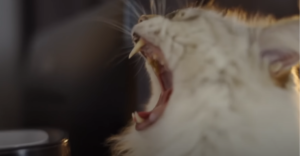
Plant-based Bacon
Plant-based bacon, made from various plant ingredients like soy, seitan, or even mushrooms, is an increasingly popular choice among those seeking a vegetarian or vegan lifestyle. However, despite being meat-free, it isn’t necessarily a good option for our feline friends. Like other types of bacon, plant-based bacon often has a high sodium content and contains preservatives that are not suitable for cats. Furthermore, cats are deprived of crucial nutrients like taurine and specific animal-based proteins that are vital for their overall well-being. It’s crucial to acknowledge that cats are obligate carnivores, specifically adapted to obtain nutrients from animal sources rather than plants. Therefore, it is imperative to exclude plant-based bacon from a cat’s dietary intake. For the most accurate dietary advice for your cat, it is always recommended to consult with a veterinarian. [3]
Can Cats Eat Bacon As A Treat?
Cats can be treated to well-cooked, unseasoned bacon on rare occasions and in small amounts. However, it shouldn’t be a regular part of their diet due to its high sodium and fat content. Bacon does not provide cats with the essential nutrients, like taurine, that are necessary for their optimal health. Excessive fat can contribute to obesity and other health problems in cats, while an abundance of sodium can result in salt poisoning. Hence, although a rare indulgence of bacon may not pose a threat to your feline friend, it is advisable to choose treats specifically formulated to meet their nutritional requirements. Before incorporating any new food into your feline’s diet, it is always advisable to seek guidance from a veterinarian.
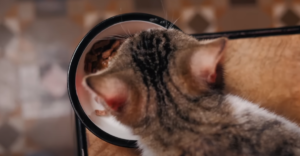
Is Bacon Used in Commercial Cat Food?
Commercial cat food typically does not include bacon as a primary ingredient.
These nutrients are typically found in animal proteins such as chicken, fish, or beef, which are commonly used in cat food. Bacon, being high in fat and salt but low in the necessary nutrients, does not meet these nutritional requirements. However, artificial bacon flavoring may sometimes be used in cat treats to make them more appealing to cats. It’s always wise to read the product’s ingredient list to ensure your cat’s food is healthy and suitable for them. If you ever have any concerns regarding your cat’s diet, it is highly recommended to seek advice from a veterinarian. [4]
What To Do If Your Cat Eats Too Much Bacon
If your cat indulges in an excess of bacon, it is crucial to closely observe them for any indications of discomfort or poor health. These may include vomiting, diarrhea, increased thirst, or lethargy. These symptoms could indicate salt poisoning, a serious condition that may occur from consuming high levels of sodium. In such cases, it’s crucial to contact your vet immediately. If your cat has consumed a sizable amount of salty bacon, dehydration can become a concern. To address this, make sure they always have access to fresh water. Feeding your cat high-fat foods like bacon regularly can put them at risk of obesity or pancreatitis. These conditions can result in severe health complications that should not be taken lightly. Regular veterinary check-ups are crucial for monitoring your cat’s health, especially if they have consumed foods that are not normally part of their diet. Always prioritize the well-being of your beloved furry companion. When uncertain, seek guidance from a trusted veterinarian to ensure their health and happiness. Remember, it’s better to err on the side of caution.
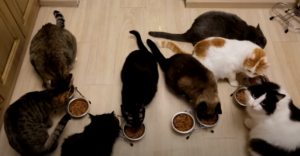
Cat Is Sick From Eating Bacon – What Should I Do?
If your cat becomes sick after consuming bacon, it is crucial to contact your veterinarian immediately. Describe the situation in detail, including the type and amount of bacon consumed and any symptoms the cat is displaying. Symptoms may manifest as vomiting, diarrhea, lethargy, or excessive thirst, all of which could be indicative of salt poisoning resulting from the elevated sodium levels found in bacon. If feasible, bring your cat to the veterinarian’s office for a comprehensive examination. Meanwhile, it is important to provide your cat with ample access to fresh water to counteract any potential effects of dehydration. It is crucial to refrain from inducing vomiting unless specifically instructed by a veterinarian, as this action can often lead to more harm than benefit. Your veterinarian will guide you on the best course of action based on the specifics of the situation. Keep in mind that it’s always wiser to exercise caution in uncertain situations. By scheduling regular check-ups and closely monitoring your cat’s diet, you can effectively mitigate the likelihood of such incidents from happening again in the future. [5]
FAQ
Can cats eat raw meat bacon?
There are several reasons why cats shouldn’t consume raw bacon. Raw bacon, like other meats, can carry harmful bacteria, such as E. coli and Salmonella, that can make cats seriously ill. Additionally, bacon is high in fat and sodium, which can be unhealthy for cats in large amounts. Excess fat can cause obesity and pancreatitis, while excessive sodium can lead to salt poisoning. Additionally, raw bacon lacks essential nutrients like taurine that cats need for optimal health. So, it’s best to not give cats raw bacon. Consult your veterinarian for the best dietary advice for your cat.
What raw meats can cats eat?
While cats can consume certain varieties of raw meat, it is imperative to guarantee that the meat is fresh and free from any potential hazards. Raw chicken, turkey, rabbit, and fish are often suitable for cats, providing vital nutrients such as taurine and arachidonic acid that cats need for their health. However, it’s important to ensure these meats are free from bones which can pose a choking hazard or harm your cat’s digestive system. Always source the meat from reliable places to avoid the risk of bacterial contamination. It’s also recommended to freeze the meat for a few days before serving to kill any parasites. Despite precautions, feeding raw meat carries risks, such as exposure to harmful bacteria like E.coli and Salmonella. Hence, it is highly advisable to seek guidance from your veterinarian prior to implementing any substantial alterations to your feline companion’s dietary regimen.
Can cats get worms from raw bacon?
Yes, cats can potentially get worms from consuming raw bacon. Raw pork products, including bacon, can contain a parasite called Trichinella spiralis, which can lead to an infection known as trichinosis. Trichinosis can cause digestive disturbances, muscle pain, fever, and in severe cases, it can be life-threatening. Therefore, to prevent your cat from the risk of worms and other parasitic infections, it’s best to avoid feeding them raw bacon or any other raw pork products. Always ensure that any meat you provide to your cat is thoroughly cooked to eliminate any potential parasites. However, it’s important to remember that cats’ dietary needs are best met with a balanced diet specifically designed for them, and any changes to your cat’s diet should be discussed with a veterinarian.
Is it OK if my cat ate raw meat?
Although it is instinctual for cats to consume raw meat in their natural habitat, it is important to exercise caution when offering raw meat to domesticated cats. Raw meat can harbor harmful bacteria such as E.coli and Salmonella, causing severe health problems. Furthermore, some raw meats contain parasites that could cause infections. Fresh meat, sourced from a reputable place and handled hygienically, may be safe for cats in small amounts. However, it’s crucial to freeze the meat for a few days before serving to kill any potential parasites. Consult a vet before adding raw meat to your cat’s diet. In case your cat has already eaten raw meat and shows any signs of sickness such as vomiting, diarrhea, or lethargy, consult with a veterinarian immediately.
Is bacon fat OK for cats?
Bacon fat is not recommended for cats because it is high in fat, which can cause obesity and pancreatitis, serious health conditions. Additionally, bacon fat is high in sodium, which can potentially cause salt poisoning. Cats require a balanced diet to remain healthy, and excessive amounts of fats can disrupt this balance. While a tiny amount of bacon fat is unlikely to harm your cat, regular or large servings can lead to health complications. Before incorporating any new food items into your cat’s diet, it is highly advisable to seek guidance from a veterinarian. Remember, a cat’s diet should be primarily composed of high-quality, nutritionally balanced cat food.
Can cats lick raw pork?
While it might seem harmless for cats to lick raw pork, it’s not advisable. Raw pork may harbor bacteria and parasites like E. coli, Salmonella, and Trichinella spiralis, causing food poisoning and parasitic infections. Even a small leak can expose your cat to these dangers. Additionally, raw pork is high in fat and sodium, elements that can negatively impact a cat’s health when consumed in high amounts. Therefore, it’s best to keep raw pork (and all raw meats) out of your cat’s reach to avoid any potential risks. Always seek a veterinarian’s dietary advice for your cat. To ensure optimal nutrition, stick to a balanced cat food diet and avoid feeding your cat raw meat or human foods. If you have any concerns about your cat’s diet, consult with a veterinarian for personalized recommendations.
Why does my cat go crazy for bacon?
Cats may seem to go crazy for bacon due to the strong, enticing aroma and the high-fat content. The scent of bacon cooking can trigger a cat’s strong sense of smell, drawing them to the source. Furthermore, cats naturally prefer high-fat foods, which makes the fatty nature of bacon appealing to them. However, although your cat may crave bacon, it’s not a healthy choice due to its high sodium and fat content. These can cause health issues like obesity, pancreatitis, and salt poisoning. Feed your cat a balanced diet formulated for felines for optimal health. If your cat constantly wants bacon or other unhealthy human foods, consult a veterinarian for dietary advice. Always prioritize your cat’s health and consult a professional before making significant changes to their diet.
Can you eat raw bacon?
Eating raw bacon is not advisable for humans due to the risk of foodborne diseases. Raw bacon, like other uncooked meats, can harbor harmful bacteria such as E.coli, Salmonella, and parasites like Trichinella spiralis, which can cause serious illnesses. Furthermore, raw bacon has high sodium and fat content, which are not beneficial to our health when consumed in large amounts. Cooking bacon properly kills these bacteria and parasites. However, even cooked bacon should be eaten in moderation because it is high in saturated fats and sodium, which can contribute to heart disease and high blood pressure. Always ensure that the bacon is well-cooked before consuming it to minimize health risks. So, it’s best to avoid raw bacon and opt for healthier protein sources.
Can I feed my cat raw egg?
It’s generally not recommended to feed raw eggs to your cat. Raw eggs can contain Salmonella and E. coli, harmful bacteria that can cause food poisoning in cats. Also, a protein called avidin in raw egg whites can hinder the absorption of the B vitamin biotin, which cats need for healthy skin and coat. Even though the risk of bacterial infection from consuming raw eggs is relatively low, it’s better to be safe than sorry. If you wish to add eggs to your cat’s diet, it is safer to offer them cooked. Cooking eggs kills any potential bacteria and neutralizes avidin. It is always advisable to seek guidance from your veterinarian prior to making any substantial alterations to your cat’s dietary regimen.
Can I give my cat raw chicken?
Feeding raw chicken to your cat should be done with caution. While cats are carnivores and can handle a certain amount of raw meat, there are risks involved. Raw chicken may have harmful bacteria like Salmonella or Campylobacter, causing food poisoning. Also, raw chicken bones can be hazardous as they can splinter and potentially cause choking or injure the cat’s digestive tract. If you opt to provide your cat with raw chicken as a meal, it is crucial to ensure that the chicken is fresh, sourced from a reputable place, and handled with strict adherence to proper hygiene standards. Freezing the chicken for a few days can help kill some parasites. It’s best to consult a veterinarian before introducing raw chicken or making any dietary changes for your cat. If your cat has eaten raw chicken and is showing signs of illness, seek immediate veterinary care. As always, the best diet for a cat is high-quality commercial cat food, which is safe and nutritionally balanced. So, while it’s tempting to share some of our favorite foods with our feline friends, it’s essential to do so in moderation and with caution.
Useful Video: Can cats eat bacon | Is bacon good for cats health | Benefits and risks of feeding Bacon to cat.
Conclusion
In conclusion, while cats are carnivores and may show interest in a variety of meats and other human foods, it’s important to remember that not all human foods are safe or beneficial for them. Foods like raw bacon, raw chicken, and raw eggs come with the risk of bacterial contamination and other health hazards. High-fat, high-sodium foods, such as bacon, can cause obesity, pancreatitis, and salt poisoning. To ensure your cat’s optimal nutrition, feed them a balanced diet of high-quality commercial cat food designed for felines. Always consult a veterinarian before introducing new foods to their diet.
References:
- https://www.untamedcatfood.com/blogs/nutrition/can-cats-eat-bacon
- https://waldosfriends.org/blog/can-cats-eat-raw-bacon
- https://livelongandpawspurr.com/blog/can-you-feed-cats-bacon/
- https://blog.healthypawspetinsurance.com/cat-cats-eat-bacon
- https://www.untamedcatfood.com/blogs/nutrition/can-cats-eat-bacon

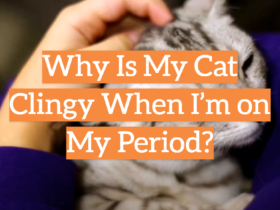
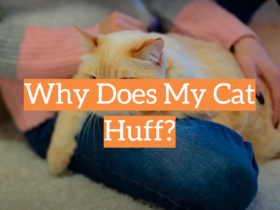
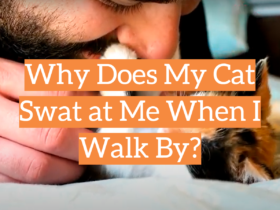
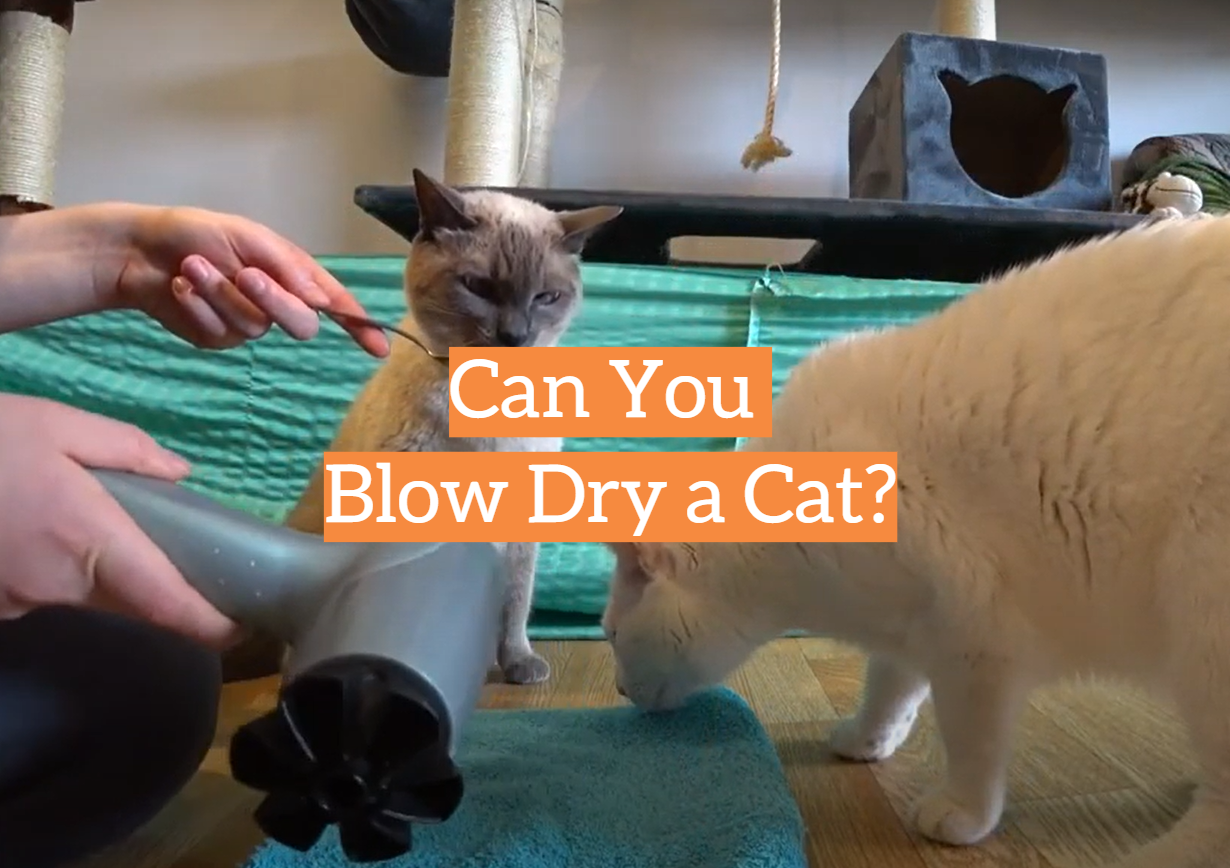
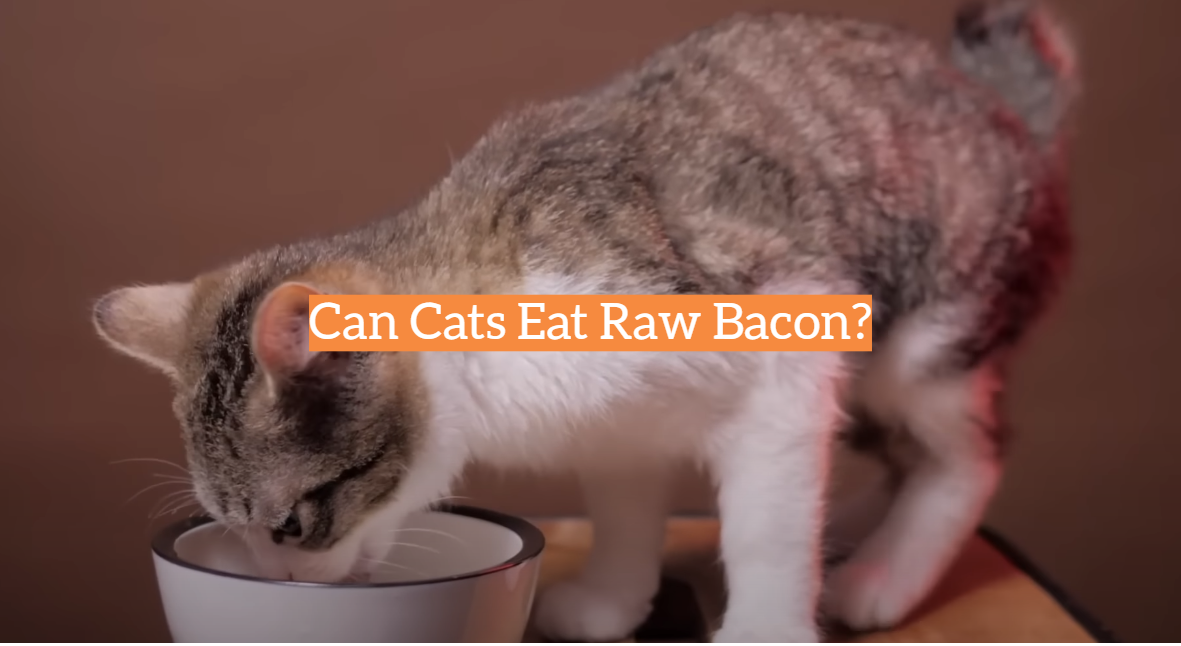
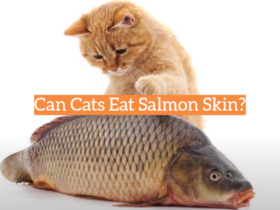
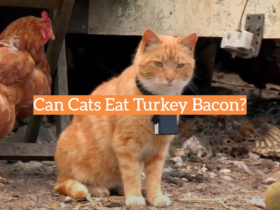
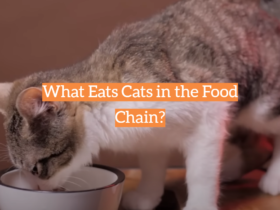
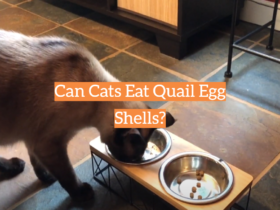
Leave a Reply